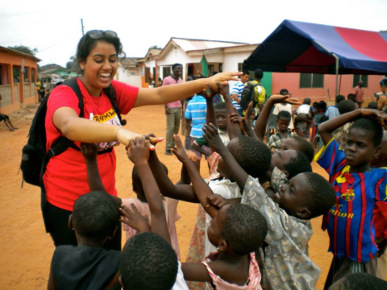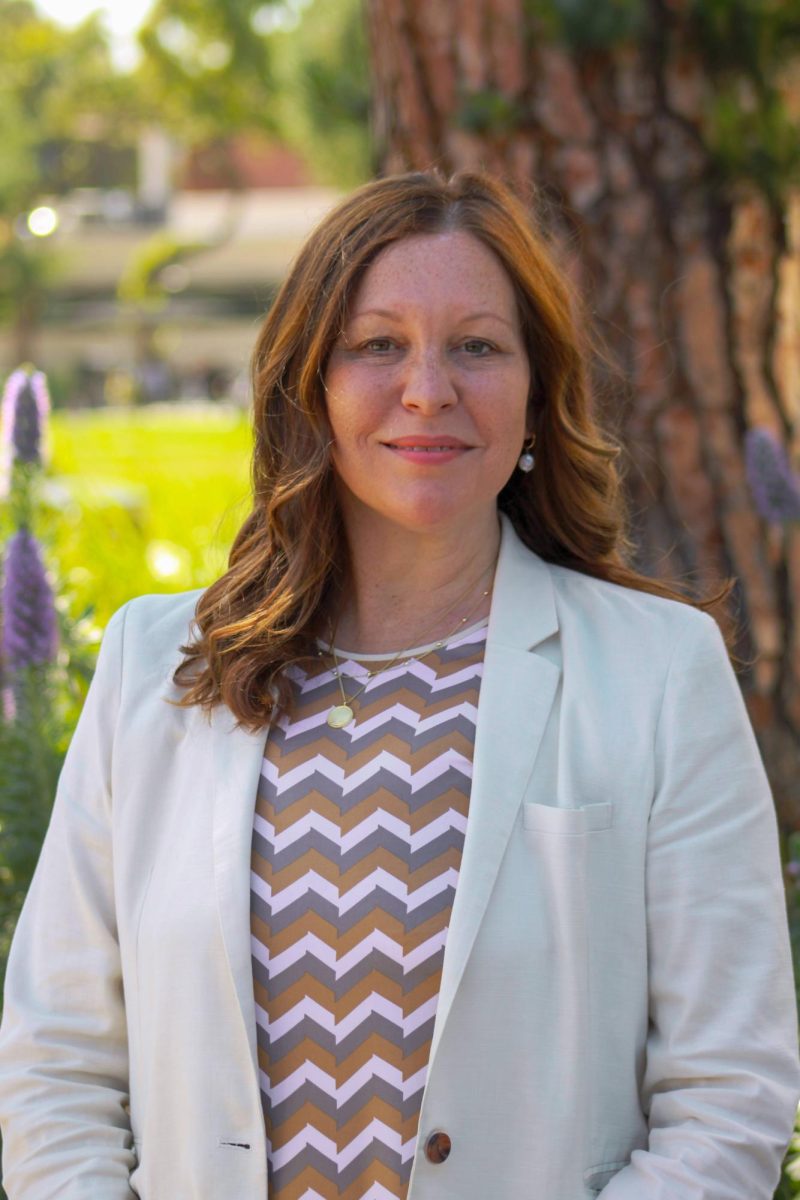By Michael Wafford
News Editor

Two Ghanaians perform a dance called the ‘alchaida,’ a traditional dance in Ghanese culture.
The warm African shores of Ghana welcomed more than 30 California State University, Bakersfield students during the summer where they set up clinics to bring the magic of medicine to an impoverished village.
The Global Medical Brigade is a CSUB club where students, a combination of medical and non-medical students, annually visit another country with a group of four American medical professionals and offer medical aid to the native people. This year the club traveled to Cape Coast, Ghana, to aid the Narkwai people and treat them
for maladies ranging from back pain to malaria.
During the 7,397-mile, 16-hour flight to Cape Coast, the students couldn’t rest. They were too excited to see the faces of their village.
Laura Castro, vice president of the club, said, “It’s a big community compared to others [in Ghana.]”
As they entered the village the differences between home and Ghana became apparent during the walk through the village while meeting the people they had come to help.
“It was pretty amazing, honestly. It was a culture shock,” Castro said.
The children ran through the streets wearing torn shirts, oversized dresses, ragged underwear or nothing at all. Their feet became more caked with dust with every step. Castro said that she often carried crackers in her pocket, for snacking, and children would become ecstatic at the sight of them only to have their hopes crushed when she couldn’t share the savory treat with them because the villagers would fight over the food. When adults were surveyed about what they would like when the next GMB came, the vast majority asked for work, according to Castro.
During their visit to Cape Coast, the volunteers managed to aid 938 people with medicine, dental work, and OBGYN checkups.
To do this they set up a clinic a few miles outside the village where they diagnosed and treatedpeople in a converted school building. They began their day at 7 a.m and by 11 a.m. the clinic was ready to treat patients until 6 p.m.
While the doctors and nurses that accompanied them diagnosed and treated the problems, the students shadowed the pros to learn how the process worked.
Just past the dentist’s office, the students and medical professionals taught public health classes which covered the basics of health care.
With lessons on everything from what sources of water are safe to drink and how to brush teeth, the club members taught the villagers the fundamentals of health care. Castro and the GMB also helped show the Narkwai people proper eating habits. They emphasized that fried food, and especially the candy that the children loved to eat, should be eaten sparingly.
The majority of those treated were women and children as most men fished during the day to earn money for their families at home, according to Castro. Even the simplest medicine such as ibuprofen resulted in gratitude from the villagers, according to Castro. As long nagging back pain subsided as the medicine took effect, men felt as if their lives were renewed.
After closing the clinic in the setting sun, Castro and the others returned to their Ghanianhome to rest for the next day. During their first night they were treated to a display of Narkwai culture as they watched the people of the village perform dances. The villagers also shared their cooking with the volunteers.
The 16-hour flight back was a much quieter affair. The excitement had settled and feelings of both homesickness and a longing to stay in their Ghanian community, combined with the fatigue from the busy schedule, made for 35 seats filled with sleeping Bakersfieldians.
“I miss Africa,” Castro said. “I would love to go back.








